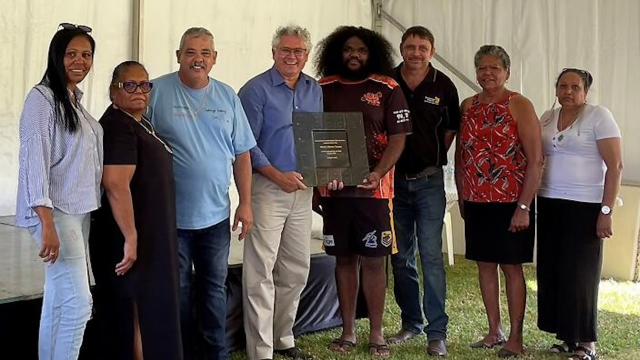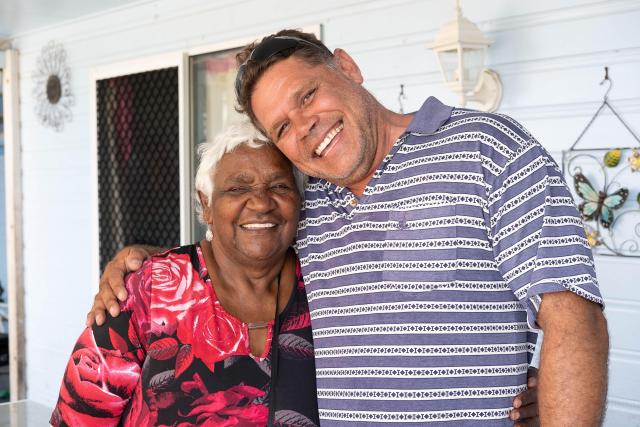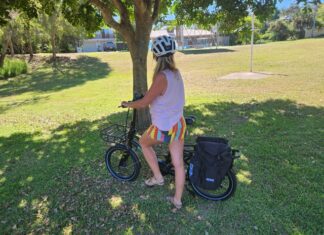After almost a quarter of a century battling for land rights, the Wakka Wakka People were recognised by the Federal Court of Australia earlier this month as Native Title Holders over approximately 1178 square kilometres of land and waters within their Traditional Country.
This significant victory in the long battle for land rights had special meaning for the Kabi Kabi Native Title claimants, who are also nearing the end of the application process, and who will host the annual AIATSIS Summit at Twin Waters next month, bringing the National Native Title and National Indigenous Research conferences together over five days .
Will the conference hear good news on the Kabi Kabi claim?
Apparently so, according to the Kabi Kabi claimant group spokesperson Brian Warner, who told Noosa Today: “The processes are now in line with expectations and we are hopeful that we will join the Wakka Wakka People in recognition of our own claim in April 2023. In the meantime, it is great to see the success of our neighbouring Peoples.”
The AIATSIS Summit is a unique forum for Aboriginal and Torres Strait Islander peoples, academics, Native Title stakeholders, legal experts, community and cultural sectors and government to collaborate in addressing current and future challenges.
It also offers opportunities to support and strengthen Aboriginal and Torres Strait Islander cultures, knowledge and governance.
Mr Warner said that the Kabi Kabi Native Title Group had been been closely involved in the design of the conference and the selection of keynote speakers.
“We look forward to the Summit as an opportunity to further the cause of Native Title for Kabi Kabi and generally.”
Held on-country in Cherbourg, the third largest Aboriginal community in Queensland, the 12 April ceremony, conducted by the Honourable Justice Rangiah, recognised the Wakka Wakka People as Native Title Holders over parcels of land spanning from the north-eastern half of the Bunya Mountains National Park in the south up to the vicinity of Paradise Dam in the north.
For Traditional Owner James MiMi, one of the most significant elements of the Federal Court hearing in Cherbourg was achieving native title over Ban Ban Springs, a sacred site and traditional meeting place.
According to Wakka Wakka legend, Ban Ban Springs was the home of the piebald eel from the days of the Dreamtime and would show itself only to Elders who spoke Wakka Wakka language and would surface so they could touch them.
“All the tribes came together at Ban Ban Springs before they went up to the Bunya mountains for the festival up there, so that’s a massive one for us,” Mr MiMi said.
“Our grandparents started it all. We needed to finalise their legacy. We know this is only half of our country that has been given determination but this is the beginning and when we get determination for all Wakka Wakka country, we can let our grandparents, Elders passed on, know that the legacy they started is finalised.”
The 12 April determination recognises the Wakka Wakka’s native title over areas spread between Yarraman to the south and Childers to the north, and includes the Burnett regions towns of Kingaroy, Murgon Cherbourg, Biggenden and Gayndah. Further areas of the claim are yet to be finalised.
Wakka Wakka country runs almost parallel to Kabi Kabi country, joining at Cherbourg, where in the early years of enforced detention, both mobs were known to their white supervisors as the Burnett blacks.
As the Queenslander newspaper reported in 1907: “A visit to the camp [then known as Barambah Creek] disclosed some interesting features. One was that the blacks from different localities had their own camps. There were the Cooktown contingent in little bark gunyahs, Birdsville blacks were by themselves in bough miamias, and the Thargomindah tribe had a camp of very large dimensions. As might be expected, the majority of the people in the camp are the Burnett blacks (the Wakka Wakka and Kabi Kabi) and their dwellings are superior…”
But not by much, and all the camps had one thing in common. They had no toilets or washing facilities. While the men and women worked long hours on the construction of administrative buildings on the other side of the creek, they all performed their daily ablutions in the Barambah Creek, and drew their drinking water from it while carcasses from upstream floated by. As the population of the settlement grew alarmingly, disease was rife and infant deaths were common.
At the ceremony in Cherbourg, Aboriginal and Torres Strait Islander Partnerships Minister Craig Crawford said the landmark decision came after a long journey to win back land justice.
“We need to acknowledge that this moment is a shining light in what is a deep, dark, history of dispossession of Aboriginal and Torres Strait Islander people in this state,’’ he said.
“Every move we make to right the wrongs of the past, such as acknowledging the Native Title rights of Traditional Owners, we take a positive step on the path to truth-telling, healing and true reconciliation.”
Native Title is now recognised over more than 535,000 square kilometres of land in Queensland – more than 30 per cent – with almost 355,000 square kilometres currently subject to Native Title claims.
Let’s hope that the Kabi Kabi claim enjoys the same success as the Wakka Wakka next year.










